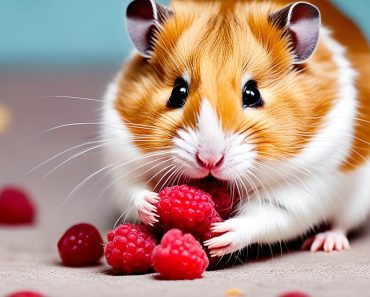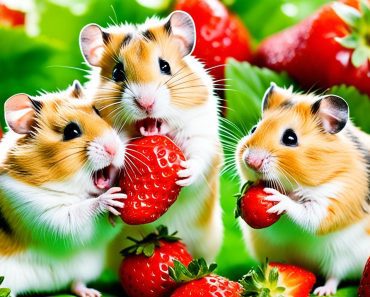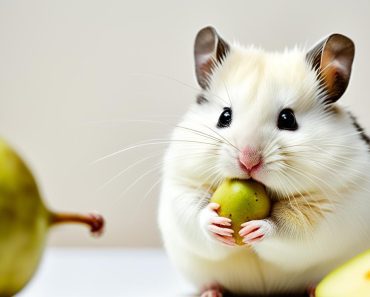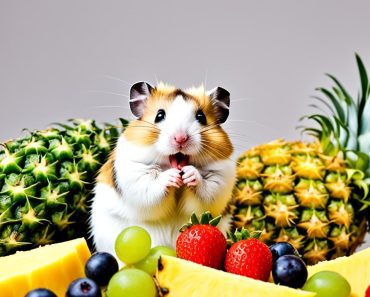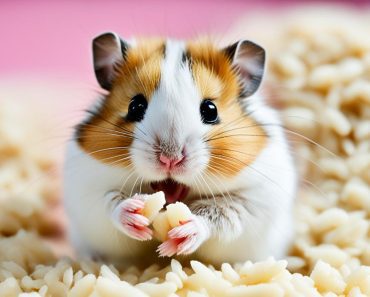If you’re a proud hamster owner like me, you’ve probably wondered about adding a little variety to your furry friend’s diet. One question that often comes up is whether hamsters can eat watermelon. As a hamster enthusiast and pet owner myself, I’m here to provide you with all the information you need to know about feeding watermelon to your beloved hamster.
Can Hamsters Eat Watermelon? Yes, they can enjoy small portions of it.
- Watermelon can be fed to hamsters in moderation.
- It is important to remove the seeds and cut the fruit into small pieces to avoid choking hazards.
- Watermelon is a good source of hydration and vitamins A and C for hamsters.
- It should be given as an occasional treat and not as a substitute for their regular diet.
- Monitor your hamster’s sugar intake and avoid overfeeding.
Is Watermelon Safe for Hamsters?
Watermelon is a delightful and refreshing fruit for humans to enjoy during the summer, but can hamsters have watermelon too? The answer is yes! Watermelon is safe for hamsters to eat, as long as it is given in moderation.
Hamsters can benefit from the high water content in watermelon, which helps to keep them hydrated. In addition, watermelon contains essential vitamins, such as vitamin A and vitamin C, which support their overall health.
However, it’s crucial to remember that hamsters should only eat a small piece of watermelon at a time. The seeds should be removed before feeding, as they can pose a choking hazard. To further reduce the risk of choking, it’s recommended to cut the watermelon into small, manageable pieces.
Watermelon is safe for all breeds of hamsters to enjoy, including Syrian, Dwarf, and Robo hamsters. However, it’s essential to note that watermelon should not replace their regular diet.
While watermelon provides hydration and some nutritional benefits, it should be given as an occasional treat rather than a staple food. Hamsters have specific dietary requirements that are best met through a balanced diet of hamster pellets and occasional treats like watermelon.
So go ahead and treat your furry friend to a small piece of watermelon as a special snack. Just remember to cut it into small pieces and remove the seeds to ensure your hamster’s safety and enjoyment!
Can Hamsters Drink Watermelon Juice?
Watermelon juice may seem like a refreshing drink option for humans, but it’s not suitable for our furry little friends. Hamsters should not have watermelon juice as it is high in sugar and can be dangerous, even for larger Syrian hamsters. It is best to avoid giving them this sugary beverage to ensure their health and well-being.
Instead of watermelon juice, a better choice for hamsters is fresh watermelon itself. Fresh watermelon is less concentrated and provides the benefits of hydration and essential vitamins for your pet. It can be a juicy and tasty treat that they will surely enjoy.
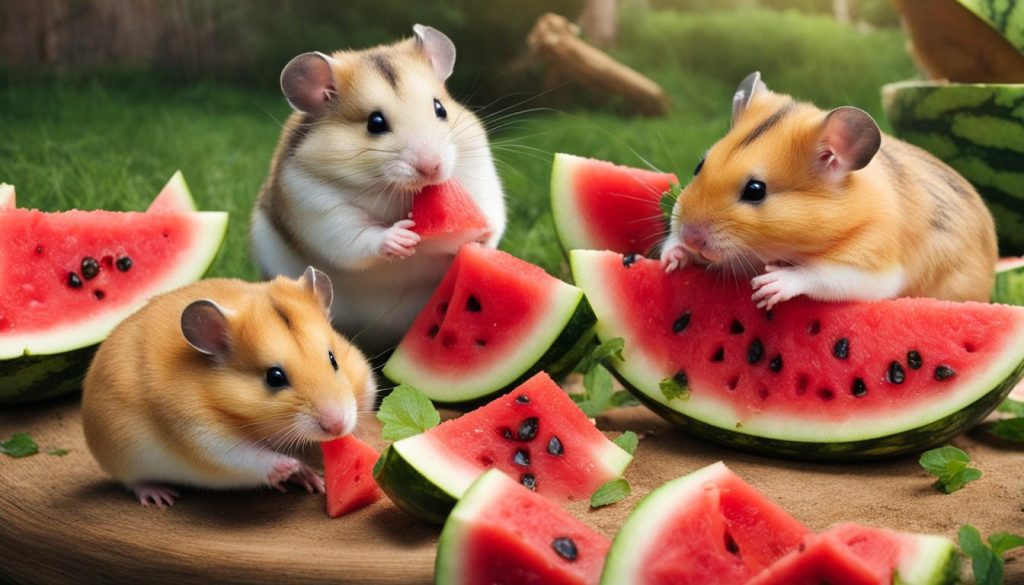
When preparing watermelon for your hamster, make sure to remove the seeds and rind. These parts can pose a choking hazard to your tiny friend. Cut the watermelon into small, manageable pieces that your hamster can easily handle. This will ensure their safety while enjoying this delicious fruit.
Remember that watermelon should only be given as an occasional treat and not as a substitute for their regular diet. While it is a good source of hydration and vitamins, the high sugar content can lead to health issues such as obesity and diabetes if consumed in large quantities.
Keep in mind that each hamster’s dietary needs may vary, so it’s crucial to consult with a veterinarian to determine the appropriate amount and frequency of watermelon or any other treats for your specific pet.
How Much Watermelon Can Hamsters Eat and How Often?
When it comes to feeding watermelon to hamsters, moderation is key. Hamsters can safely consume small quantities of watermelon, approximately 1 teaspoon per week. However, it’s important to consider the type of hamster breed. Dwarf hamsters, being smaller in size, should have half the amount, while Syrian and Robo hamsters can handle slightly more.
When offering watermelon to your furry friend, make sure to cut it into small, manageable pieces. This precaution is particularly important as hamsters have poor eyesight and may struggle with large pieces. Cutting the watermelon into small chunks also helps prevent choking hazards.
While watermelon can be a delightful treat for hamsters, it should only make up a small portion of their overall diet. The majority of their diet should consist of hamster pellets, which provide the necessary nutrients for their well-being. Watermelon should be offered as an occasional snack rather than a staple food source.
Benefits of Watermelon for Hamsters
Watermelon provides several benefits for hamsters. As a low-fat snack option, it promotes a healthy diet for our furry friends. Its high water content is especially beneficial during the summer months, helping to keep hamsters hydrated. Furthermore, watermelon is a rich source of vitamins A and C, which are essential for the immune system and overall health of hamsters.
Did you know? Watermelon also contains carotenoids, antioxidants that can help prevent cancer and boost collagen production in hamsters. These properties contribute to their well-being and longevity.
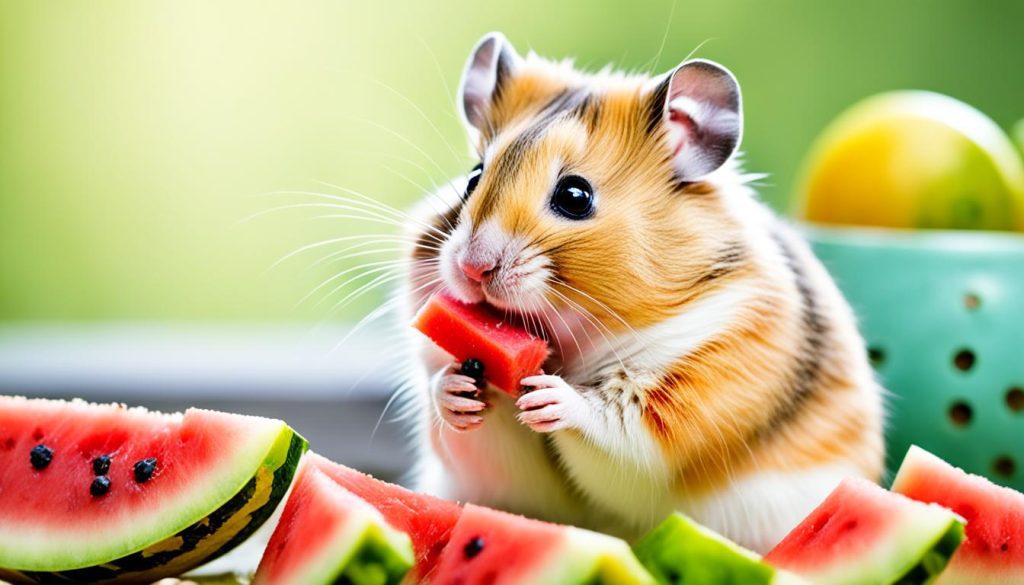
Hydration and Vitamin Boost
- The high water content in watermelon helps to keep hamsters hydrated, especially during hot months.
- Vitamin A aids in maintaining healthy skin and coats, while vitamin C strengthens the immune system.
Antioxidant Benefits
- Carotenoids found in watermelon act as antioxidants, protecting the cells from damage and promoting overall well-being.
- Antioxidants can also help prevent the development of certain diseases, including cancer.
Supports Collagen Production
- Watermelon’s nutritional composition supports collagen production, contributing to healthy and strong connective tissues.
- Collagen is crucial for the proper functioning of muscles, bones, and joints in hamsters.
While watermelon offers these beneficial properties, it’s important to keep in mind the moderation and proper portioning when feeding it to hamsters. Remember to remove the seeds and cut the fruit into small, manageable pieces to prevent choking hazards.
Risks of Feeding Watermelon to Hamsters
While watermelon can be a healthy snack for hamsters, there are some risks associated with feeding it to them. It’s important to be aware of these risks to ensure the well-being of your pet.
One of the main concerns when it comes to watermelon is its high sugar content. Consuming large quantities of watermelon can lead to obesity and diabetes in hamsters. Therefore, it’s crucial to provide watermelon as an occasional treat and not as a regular part of their diet.
Another risk is the seeds of the watermelon. These seeds can pose a choking hazard for hamsters, as they have small throats. Before feeding watermelon to your hamster, make sure to remove all the seeds to prevent any potential choking incidents.
In addition to the risks associated with the sugar content and seeds, excessive consumption of watermelon can also lead to dehydration in hamsters. Although watermelon contains a high water content, the sugar in it can have a dehydrating effect. It’s important to monitor your hamster’s watermelon consumption and ensure they have access to fresh water at all times.
Remember, while watermelon can be a refreshing and nutritious treat for your furry friend, it should be given in moderation, and their regular hamster diet should not be replaced. By being aware of the risks and taking precautions, you can safely include watermelon as part of your hamster’s diet.
Conclusion
Watermelon can make a delightful and nutritious treat for hamsters when offered in moderation. It serves as a source of hydration, essential vitamins, and vital minerals for their well-being. However, it is crucial to monitor the high sugar content in watermelon when feeding it to hamsters. Removing the seeds and rind, and cutting the fruit into small, manageable pieces are essential steps to ensure their safety while enjoying this delicious treat.
While watermelon adds variety to a hamster’s diet, it should never replace their regular meals. It is vital to understand that watermelon should only be given as an occasional snack. By doing so, we can strike a balance between providing a refreshing and healthy addition to their diet and maintaining their overall nutritional needs.
Remember, when it comes to sharing in the joys of watermelon with your furry friends, moderation is key. By offering watermelon as a treat, we can ensure that hamsters receive the benefits of hydration and essential nutrients while minimizing the potential risks associated with excessive sugar intake. So go ahead, treat your hamster to a small piece of juicy watermelon and watch their little whiskers twitch with delight!

